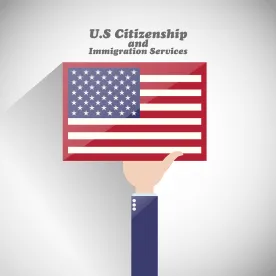US Citizenship and Immigration Services (USCIS) announced on March 3, 2017 that it will temporarily suspend premium processing for all H-1B filings starting April 3, 2017, and this suspension could last up to six months. The temporary suspension applies to Fiscal Year (FY) 2018 H-1B cap filings as well as other cap-exempt cases including change of employer, extension and amendment petitions. USCIS claims that the suspension will allow them to address a backlog of long-pending H-1B petitions. At present, H-1B petitions, without premium processing, are taking 6 to 11 months to process.
The suspension announcement comes right before USCIS is about to receive thousands of H-1B cap petitions on April 3rd. Last year USCIS received approximately 236,000 H-1B cap petitions that were randomly selected for processing through the so-called H-1B lottery. We anticipate that a high volume of petitions will be filed again this year where USCIS will use the lottery system to select petitions for processing. However, unlike previous years, the FY 2018 H-1B cap cases will not be eligible for the 15-day premium processing. While premium processing does not affect the chances that an H-1B petition will be selected in the lottery, it does provide greater certainty to certain beneficiaries, specifically, F-1 students who are changing status to H-1B and whose Optional Practical Training (OPT) work authorization will terminate between April 3 and October 1. This is known as the “cap gap” period.
International Travel during Cap Gap
The suspension of premium processing may also delay a beneficiary’s ability to travel internationally between the filing and approval of the H-1B cap petition. If the beneficiary travels while a change of status is pending and before it is approved, the request for a change of status will be deemed abandoned. However, the employer’s underlying H-1B petition could still be approved, but will require the beneficiary to depart the US and obtain a visa abroad.
Change of Employer and Extensions
This suspension also presents problems for H-1B employers and employees seeking to change jobs or extend their status with the same employer after April 3rd. For change of employer situations, this suspension will add delay and uncertainty. While the law permits an employee maintaining valid H-1B status to “port” over to a new H-1B employer after a petition is filed and prior to approval, there is never a guarantee that the petition will be approved. Therefore, employers and employees will be faced with a difficult choice: wait several months for the H-1B transfer to be approved or commence employment while the petition is pending. If the employee starts employment with the new company, and the petition is ultimately denied, the employer loses an employee after investing significant time and expense and the employee not only loses their new job, but most likely will be unable to return to their previous H-1B job and will be left without lawful immigration status. For those timely extending their H-1B status (before expiration of status), the current regulations provides for automatic work authorization of 240 days beyond their H-1B status expiration date. USCIS will now need to prioritize these extensions to prevent H-1B workers from losing work authorization prior to approval of their extension requests.
In addition, many States tie the issuance and renewal of a driver’s license to an individual’s immigration status. Therefore, many H-1B holders may be unable to renew their expired driver’s licenses for several months while they await approval of their extension of H-1B status petition.
USCIS advises that in urgent situations, employers can request faster processing if a case meets USCIS’ longstanding expedite criteria. Employers and employees should be aware that expedite requests are granted at USCIS’ discretion and only issued for emergencies, humanitarian reasons, in cases of severe financial loss to the employer or employee, and in a few other very limited circumstances.
Going forward, employers should plan accordingly and commence H-1B extensions as early as possible. Current regulations permit filing of H-1B extensions six-months prior to the petition’s validity expiration date.




 />i
/>i
